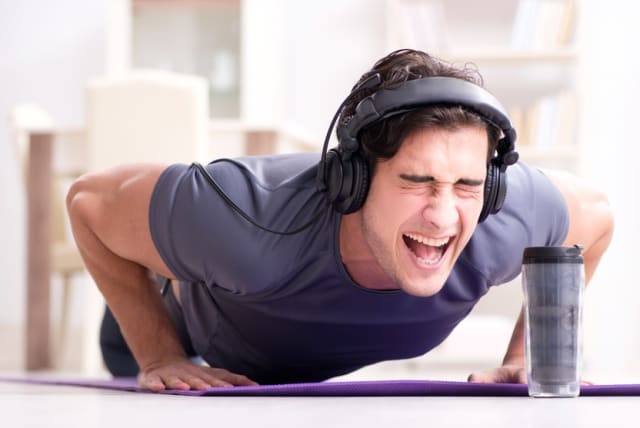Do you want to strengthen your abdominal muscles? Try these three exercises

One of Britain's leading fitness trainers claims sit-ups are ineffective for building muscular abs. He offers some alternatives.
Jack Claxton, a renowned fitness coach in Great Britain, asserts that the time and effort invested in squats to shape and strengthen the abdominal muscles can be counterproductive and even harmful. While individuals often focus on improving the appearance and toning of their stomachs, one of the most common exercises employed for this purpose is sit-ups.
However, Claxton contends that sit-ups "do nothing for the abdominal muscles" and may result in various injuries. As a result, he recommends abandoning sit-ups in favor of exercises he believes are far more effective.
According to Claxton, the most frequent mistake made during squats is performing them too quickly.
"Not only does this make the exercise less effective by failing to engage the core muscles, but it also encourages incorrect posture, which increases the risk of injury," he cautioned.
Claxton also said that poor posture during sit-ups can exert pressure on the wrong areas and lead to improper posture habits in everyday life.
Many individuals mistakenly place their hands behind their heads during sit-ups, causing strain on the neck muscles and leading to the overuse of the lower back muscles. Instead of targeting the core muscles in the abdominal region, this improper practice places unnecessary strain on the back and neck, potentially resulting in muscle overstretching or tearing. Poor posture during physical activity can also impede blood flow and cause breathing difficulties, significantly impacting overall health.
Furthermore, utilizing the wrong muscles during exercise can lead to chronic pain in the long run. Claxton explains that while a minor muscle strain will not cause lifelong pain, consistent misuse of back and neck muscles can eventually lead to serious injury. Muscle tears or spasms can result in scarring, leading to persistent back stiffness, pressure, and lasting pain if left untreated. For individuals determined to continue with sit-ups despite these risks,
Claxton provided some advice.
"To maximize the benefits of sit-ups, slow down the movement and maintain control,” he said. “Avoid excessive range of motion and focus on squeezing and tightening the core muscles while keeping the upper body aligned and minimizing spinal bending. During the descent phase, slow down and concentrate on engaging the core muscles rather than relying on the lower back."
Still want to strengthen the core abdominal muscles without risking neck and back injuries? Here are three alternative exercises you should incorporate into your workouts.
Three effective exercises
1. Plank Exercise: This exercise involves holding a position that engages the core muscles, thereby improving posture and strengthening the main abdominal muscles. Start by lying face down and placing your shoulders directly above your palms, legs extended. Ensure a neutral spine position, creating a straight line from your legs to your neck, while avoiding strain in the lower back. To reduce pressure on the hands, you can perform the exercise on your forearms with your shoulders directly above your elbows. Adjust the level of difficulty by resting your knees on the floor. Breathe normally and focus on pulling your stomach toward your back, akin to trying to fit into tight pants. Hold this position for one to two minutes, depending on your ability.
2. Mountain Climber Exercise: This exercise effectively strengthens the core while elevating your heart rate. It targets multiple muscle groups with minimal risk of injury. Begin in a high plank position on the floor, then lift your left leg and move your left knee diagonally across your body toward your right knee. Return to the starting position and repeat the movement with the right knee. Continue alternating between legs for 35 seconds.
3. Reverse Crunch Exercise: An excellent alternative to sit-ups, the reverse crunch targets the abdominal muscles. Lie face up on the floor with your knees bent at a 90-degree angle and feet flat on the ground. Lift your feet off the floor, raise your hips, and bring your knees toward your face without lifting your back off the mat. The hips and lower back should lift while the knees remain bent. Lower your feet back toward the floor until they touch the ground.
Jerusalem Post Store
`; document.getElementById("linkPremium").innerHTML = cont; var divWithLink = document.getElementById("premium-link"); if (divWithLink !== null && divWithLink !== 'undefined') { divWithLink.style.border = "solid 1px #cb0f3e"; divWithLink.style.textAlign = "center"; divWithLink.style.marginBottom = "15px"; divWithLink.style.marginTop = "15px"; divWithLink.style.width = "100%"; divWithLink.style.backgroundColor = "#122952"; divWithLink.style.color = "#ffffff"; divWithLink.style.lineHeight = "1.5"; } } (function (v, i) { });

